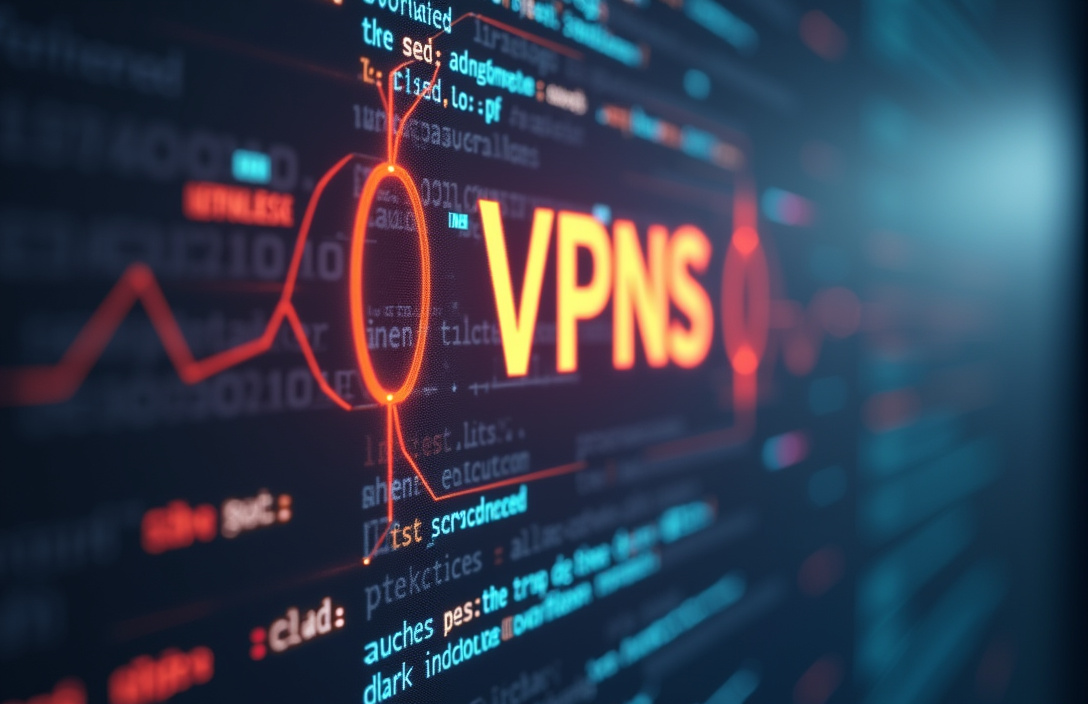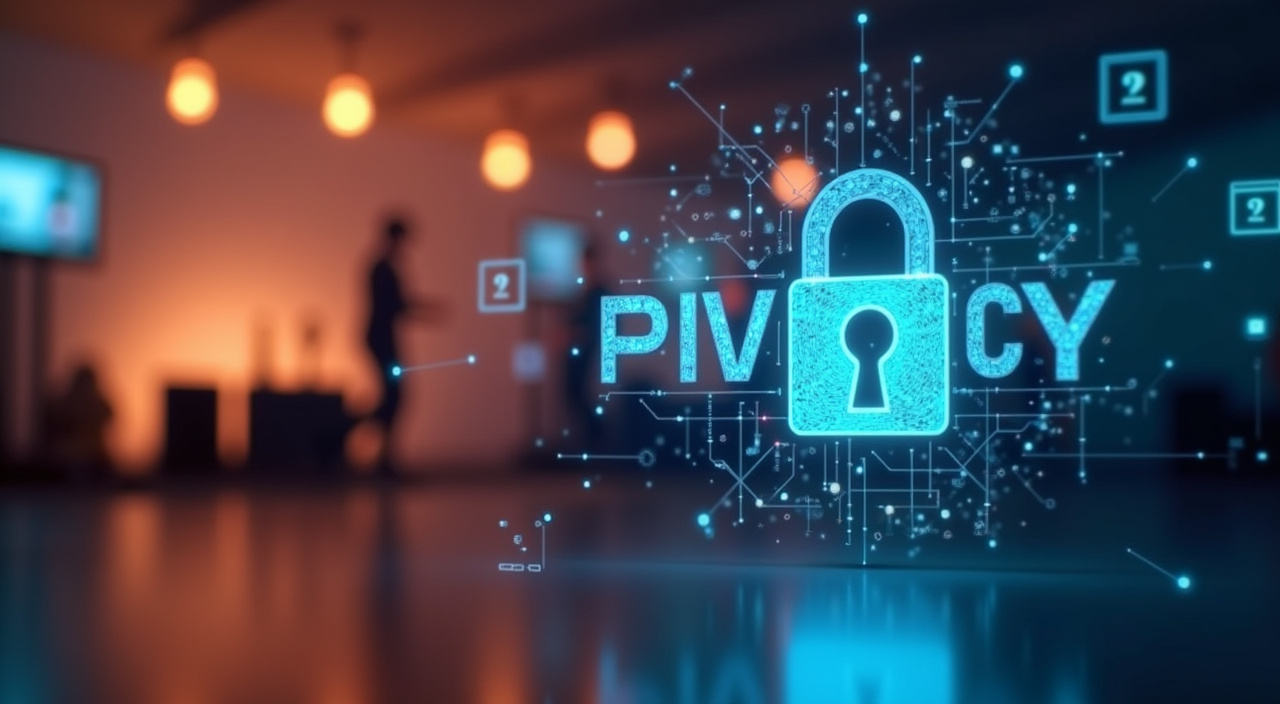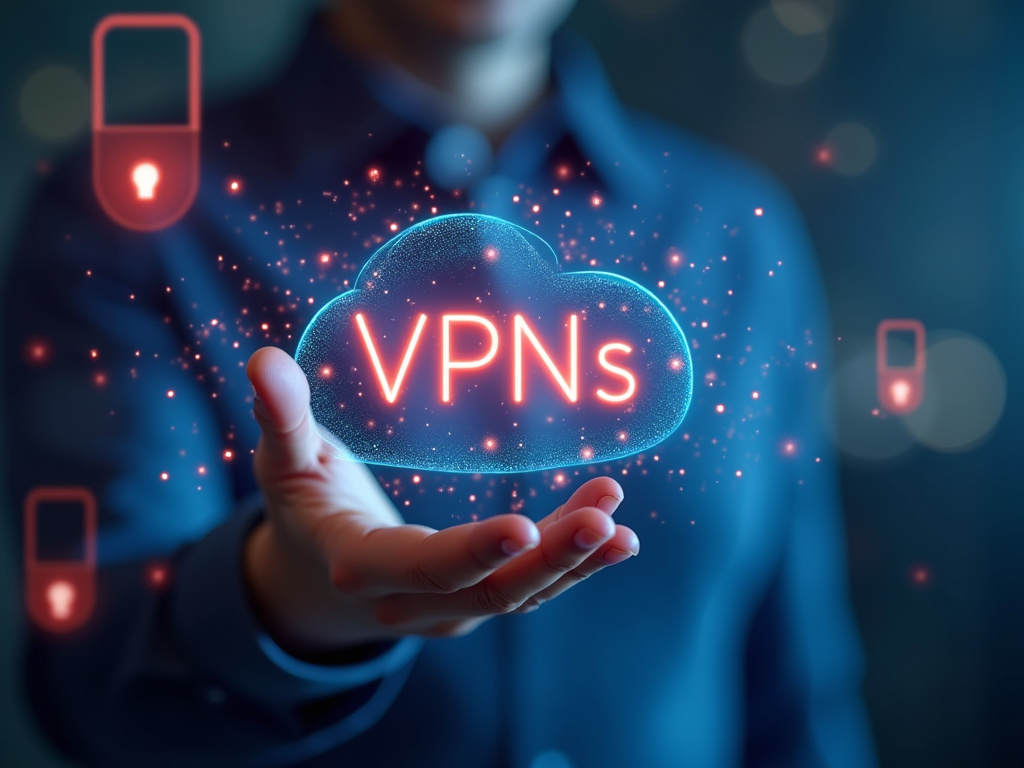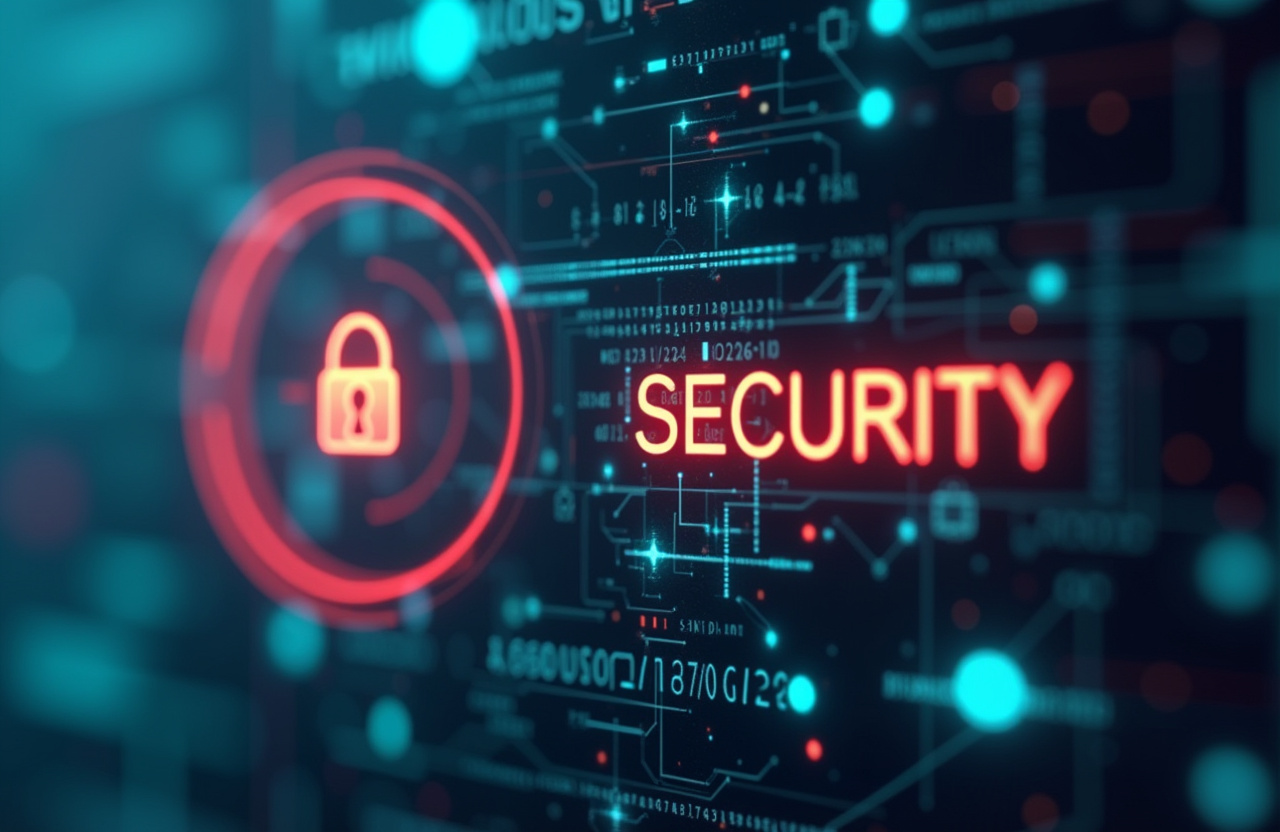VPNs for Photography Studios: Protecting Client Portfolios

Table of Contents
Securing Client Portfolios: A VPN's Role in Protecting Photography Studios
In the visually driven world of photography, where creativity intertwines with technology, photography studios face a unique set of security challenges that extend far beyond traditional locks and alarms. The digital client portfolio, a collection showcasing a studio's best work and often containing sensitive client information, has become the new gold, a high-value target for cybercriminals. A breach in security can unravel years of hard work, leading to reputational damage, financial losses, and legal liabilities.
Therefore, photography studios must adopt comprehensive digital security strategies to protect these invaluable assets. A well-implemented strategy should not only consider the conventional measures of strong passwords and up-to-date software, but integrate advanced protective measures against the modern threats to data security. Among these advanced measures, a photography VPN emerges as a powerful and versatile tool for enhancing client portfolio security, fostering creative protection, and ensuring robust digital asset security.
This article aims to explore the critical role VPNs play in the safety of photography studios, how they address specific security needs, and how to select and implement them effectively. We will delve into the various ways VPNs can shield sensitive client data, protect creative work from theft, and provide a secure environment for online operations of the studio. In an era where cyber threats are becoming increasingly sophisticated, understanding and implementing a VPN solution has changed from an optional extra to a necessity for any photography studio serious about protecting its creative integrity and client relationships.
The modern photography studio is a dynamic hub of activity, constantly creating, editing, storing, and sharing digital assets. This constant flow of data creates many potential weak points that cybercriminals can exploit. Without a solid security infrastructure, client portfolios, creative work, and sensitive client communication all become susceptible to compromise.
By providing a secure, encrypted connection, and by masking the IP address of the client, a VPN can create an encrypted "tunnel" for data transmission, making it virtually impenetrable to hackers. This ensures that even if an attacker intercepts the data, they will be unable to decipher it, thus protecting the confidentiality of client information and creative assets. Further enhancing the security of a studio through the use of a VPN is its ability to secure remote access.
Photographers often need to access their work from remote locations, whether it be a client presentation on site, or working while traveling. By using a VPN, they can securely connect back to the studio's network, accessing their digital assets as if they were physically present in the studio. This eliminates the risks associated with using public Wi-Fi networks or unsecured connections, which are often targeted by hackers.
In addition to securing client portfolios and enabling secure remote access, VPNs also play a crucial role in protecting against copyright infringement. By masking the photographer's IP address, a VPN makes it more difficult for others to track down the photographer's work and steal it for unauthorized use. This is particularly important in the digital age, where images can be easily copied and shared without permission.
Implementing a VPN is not just about protecting against external threats; it's also about instilling a culture of security within the photography studio. By providing a secure and reliable tool, the client will understand that its data is safe and that you value its privacy. Thus, a VPN creates an environment of trust and confidence, which is essential for building long-term client relationships and protecting the studio's reputation.
Enhancing Footage Security: A Multifaceted Approach
The digital age brings both unprecedented opportunities and heightened risks to the photography industry. The ability to easily share portfolios online and collaborate with clients across geographical boundaries is a major advantage. Whether this means showcasing sample photos to attract a customer, or discussing a project with an offshore retoucher, is a benefit to any photography studio.
However, this convenience also exposes studios to a variety of security threats, including data breaches, unauthorized access, and intellectual property theft. Securing client portfolios is essential for maintaining client trust, protecting sensitive information, and preventing financial losses. Without proper security measures in place, the risk of losing data, damaging your reputation, and legal issues increases drastically.
A photography VPN plays a crucial role in mitigating these risks by providing a secure and encrypted connection between the studio's network and the internet. This encryption process scrambles data, making it unreadable to unauthorized parties and preventing eavesdropping on sensitive communications. A VPN acts as a secure intermediary, shielding the studio's internet activity from prying eyes and ensuring that sensitive information remains confidential.
If an attacker captures the encrypted traffic, it will be unreadable, and therefore useless. Beyond basic encryption, a VPN offers additional features that are particularly beneficial for photography studios. These features include secure file sharing, which allows studios to transfer large image and video files to clients without compromising security.
Due to their large sizes, image and video files are particularly vulnerable when transferred. A VPN ensures that these files are protected during transmission, preventing unauthorized access or modification. Furthermore, VPN’s offer remote access to digital assets, enabling photographers to access their work from anywhere in the world with the same level of security as if they were in the studio.
The ability to access work from various locations, without having to worry about the dangers of connecting to an unsecure network is paramount. IP address masking is another advantage. This prevents hackers from tracking the studio's location and activities.
By concealing the IP address, it becomes harder for hackers to pinpoint your digital origin, thereby increasing the privacy of the client and the studio. Protection against public Wi-Fi risks is crucial for photographers who often work on location and need to use public networks. Public Wi-Fi networks are notoriously insecure, making them a playground for hackers.
By using a VPN, photographers can encrypt their internet traffic and protect their data, even when connected to a public network. By providing a comprehensive suite of security features, the need for a Photography VPN, therefore, becomes paramount. Studios depend on VPNs not just to protect their files and IP addresses but also to improve their overall cybersecurity posture.
The absence of these measures can expose client data to being manipulated, stolen or exposed, which can have considerable legal and financial ramifications. Furthermore, it can damage the studio's reputation. Clients value confidentiality; therefore, any suspicion of lax security can be enough for potential clients to turn away.
In conclusion, integrating a VPN into the studio's workflow is a sensible decision for protecting portfolios in the digital environment. It not only guards against the dangers mentioned above but also gives clients more confidence. The peace of mind that comes with knowing that their sensitive information is protected is an invaluable asset for any studio in the modern age.
Choosing the Right VPN: Key Considerations for Photographers
The specific security needs of each studio can vary depending on its size, the types of clients it serves, and the volume of digital assets it manages. Large studios with high-profile clients may require more robust security measures than small studios. Similarly, studios specializing in sensitive subject matter, such as personal portraits, boudoir photography, or confidential business projects, need to implement stricter security protocols to protect client privacy.
Factors such as remote work practices and the use of cloud storage also have an impact on the sort of security solutions a studio should consider. Before anything, a photographer must assess their business practices to determine what level of security is needed. The implementation of creative protection is another critical aspect where a VPN can provide significant value.
Photography studios invest substantial time and resources in creating digital assets, and protecting these assets from unauthorized use is paramount. From concept development and photography sessions to post-processing and marketing, the studio puts its intellectual power in every creative project. This investment must be protected to safeguard the studio's financial future.
A VPN can prevent the theft of creative work by encrypting data during transmission and ensuring that only authorized individuals can access the studio's network. In addition, VPN’s can help protect against copyright infringement by masking the photographer's IP address, making it more difficult for others to track and steal their work. As an extra step, many photographers insert a digital watermark on photos that are shared online.
However, a determined hacker can remove these watermarks. By combining watermarks with a VPN can offer a comprehensive approach to protecting copyright. Furthermore, a VPN can be used to securely manage digital rights, ensuring that only authorized parties can access, modify, or distribute copyrighted material.
This is particularly important when working with stock photos, licensed images, or collaborative projects where multiple parties have rights to the digital assets. By integrating a VPN into their digital asset management process, photography studios can enhance their ability to monitor and control the use of their creative work. Instead of sharing files through email accounts, VPNs can be used to protect a studio's email accounts, preventing hackers from getting information about clients and their photos.
This can enhance the reputation of a studio and increase customer trust. The VPN provides a secure tunnel for emails, thereby preventing any form of interception by third parties. Overall, photography VPN solutions prevent attacks, maintain the integrity of a brand, and offer security over a normal internet connection.
This holistic strategy can help mitigate the risk of copyright infringement, protect against legal liabilities, and preserve the value of their intellectual property. For instance, studios that take wedding photos or baby pictures can use VPNs to ensure that these memorable moments are preserved and protected. The creative protection provided by a VPN is, therefore, an essential component of a comprehensive security strategy for photography studios, adding another important dimension to the overall security posture.
Using a VPN is akin to securing the doors of a studio against unwanted people, ensuring safety for the assets contained within.
VPNs for Services: Protecting Subscription Based Platforms
Selecting the right VPN for a photography studio involves carefully considering several factors, including the studio's specific security needs, budget, and technical expertise. Each photography business has different levels of needs, so it is important to pick the right security features in a VPN for your business. Some VPN services are designed for general use, while others are tailored for specific industries or purposes.
When choosing a VPN for studios, prioritize services that offer strong encryption, a no-logs policy, and a wide range of server locations. Strong encryption ensures that data is protected during transmission, while a no-logs policy guarantees that the VPN provider does not track or store users' browsing activity. The number of servers is important because these are the points from which you can access geo locked contents or secure a connection.
A wide range of server locations allows photographers to access their work from anywhere in the world without compromising security. For many studios, the goal will be to find a VPN that can be used for everything, while being cheap enough to afford. Therefore, it is important to weight which feature, and which security standard, is the most important for a business.
Beyond these fundamental features, also consider additional features that may be beneficial for photography studios. These include secure file sharing, which allows studios to transfer large image and video files to clients without compromising security. Look for VPNs with features specifically designed for file transfer, such as drag-and-drop functionality and support for large file sizes.
Look for VPNs with the highest levels of encryption. Also consider remote access to digital assets, enabling photographers to access their work from anywhere in the world with the same level of security as if they were in the studio. This feature is essential for photographers who work remotely or travel frequently for assignments.
Another important part of security considerations is the operating system used during the data transmission. Certain operating systems have added security benefits, as opposed to others. IP address masking prevents hackers from discovering the location where data is being transmitted from.
Moreover, the IP address is needed to track the content user, so masking this is the first step in preventing IP tracking during photography sessions. Many VPNs also support features such as ad blocking and malware protection, which can further enhance the studio's security posture. The end goal is to ensure security for the photographer, the company, and the client.
Before committing to a VPN service, thoroughly research and read reviews from other photography studios or creative professionals. This can provide valuable insights into the VPN's performance, reliability, and customer support. Pay attention to reviews that mention specific security features, ease of use, and compatibility with the studio's existing software and hardware.
Price is also a factor, but a VPN should not be the only feature that photographers worry about. Free VPNs may offer a good service, but also come with security risks and limitations. Evaluate each business for strengths, weaknesses, prices, and server access.
By carefully considering these factors, photography studios can choose a VPN that effectively meets their specific security needs, protects their client portfolios, and fosters a secure environment for creative expression. The time and effort spent on choosing the best VPN, is invaluable to the future success of a photographer.
Implementing a VPN within a photography studio requires a strategic approach that considers not only the technical aspects but also the human element. A successful implementation involves careful planning, proper configuration, and ongoing monitoring to ensure that the VPN effectively protects client portfolios and creative assets. Start by defining clear security policies that outline the studio's requirements for VPN usage.
These policies should specify which devices and applications must use the VPN, when the VPN should be used, and what types of data should be protected. Make sure all policies comply with legal regulations and client guidelines. Employee training is a crucial component of VPN implementation.
Educate employees on the importance of using the VPN, how to connect to it properly, and what to do if they encounter any issues. Emphasize the risks of using public Wi-Fi networks without a VPN and the importance of protecting sensitive data. Employees who know about the importance of a VPN, are more likely to follow directions, which protects the data that they work with on a daily basis.
Once the VPN is set up, test it thoroughly to ensure that it is working as expected. Verify that the VPN is encrypting data traffic, masking IP addresses, and protecting against DNS leaks. Conduct regular security audits to identify and address any vulnerabilities in the VPN configuration.
Monitoring the VPN's performance and usage is also essential for identifying and addressing potential issues. Track connection speeds, server availability, and data usage to ensure that the VPN is providing a reliable and secure experience. Set up alerts to notify you of any suspicious activity, such as failed login attempts or unusual data transfers.
An often forgotten point, is remembering to update software regularly. Keep the VPN client software, operating systems, and security applications up to date to protect against known vulnerabilities. Enable automatic updates whenever possible to ensure that you are always running the latest security patches.
All of these components are required for a proper software installation and security protocol. Furthermore, do not ignore physical security measures that will also protect the VPN. Use strong passwords and multi-factor authentication to protect access to VPN accounts and devices.
Physically secure the studio's computers and servers to prevent unauthorized access. Implement access control lists (ACLs) to restrict access to sensitive data and resources. Using a combination of computer and physical components, will help a photographer secure all data being used on a regular basis.
In conclusion, photography studios must embrace VPNs as an integral part of their security strategy. By taking proactive steps to protect client portfolios and creative assets, studios can safeguard their reputation, maintain client trust, and thrive in the digital age. VPNs are a modern asset for any photography studio that works on a regular basis in the digital world.
Stay Updated
Get the latest VPN news, tips, and exclusive deals to your inbox.




